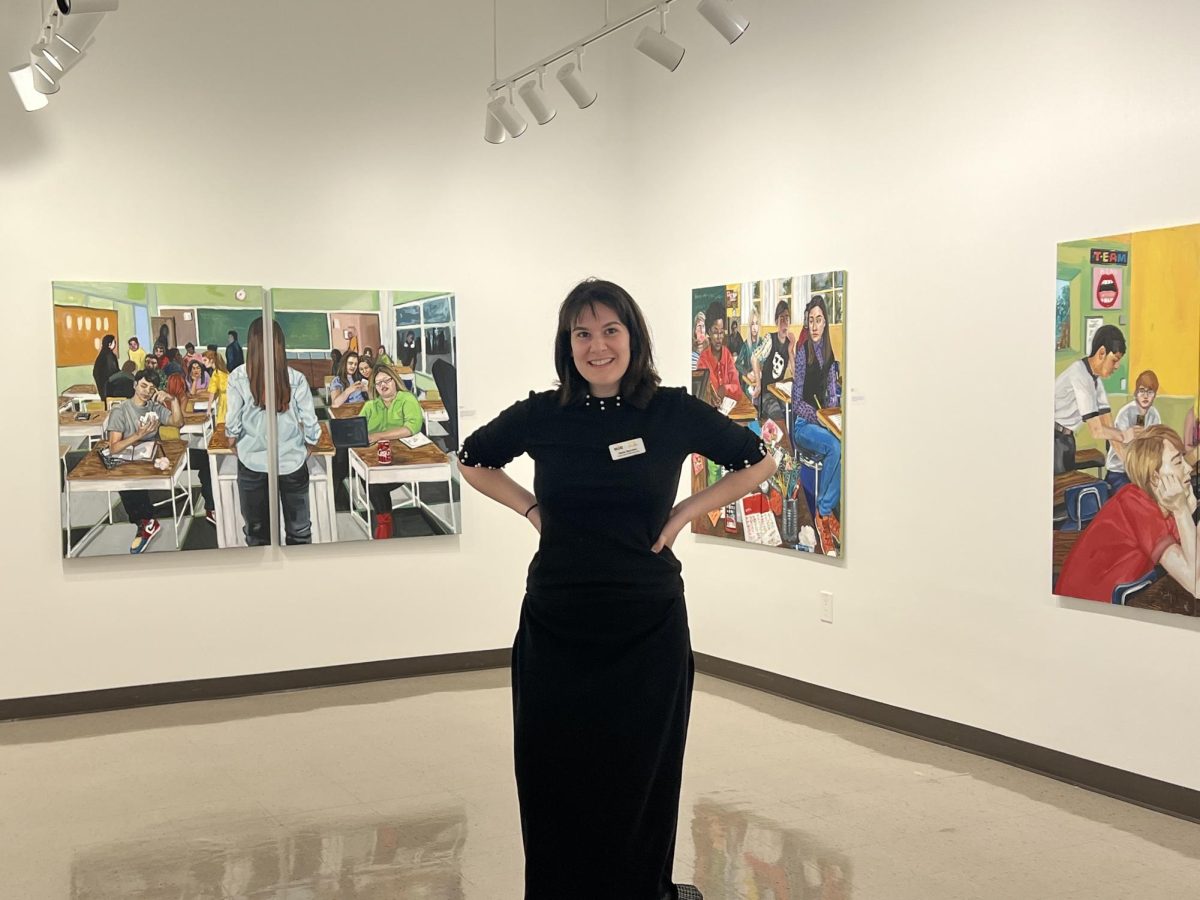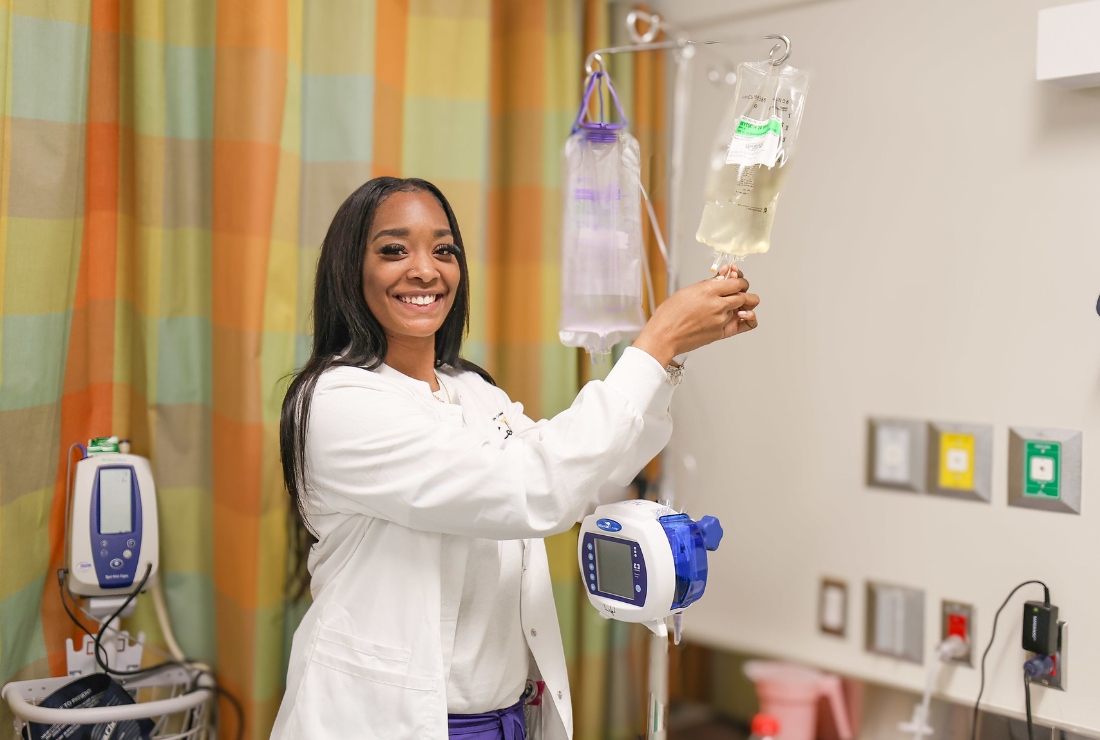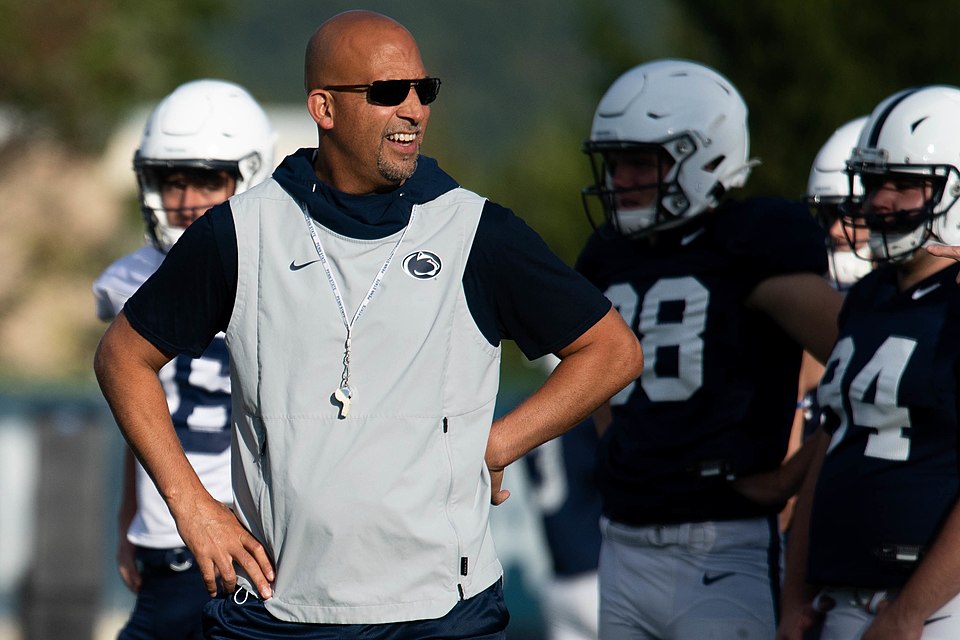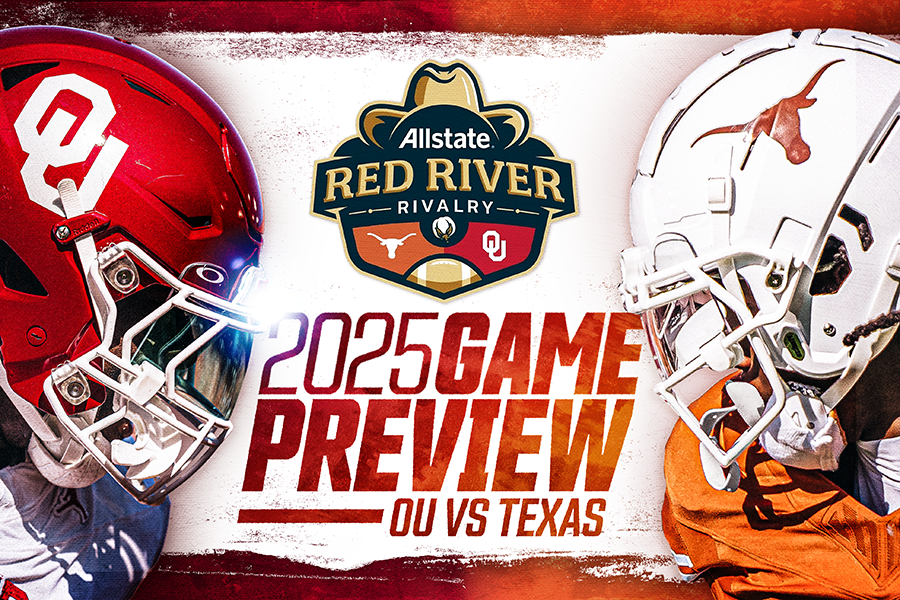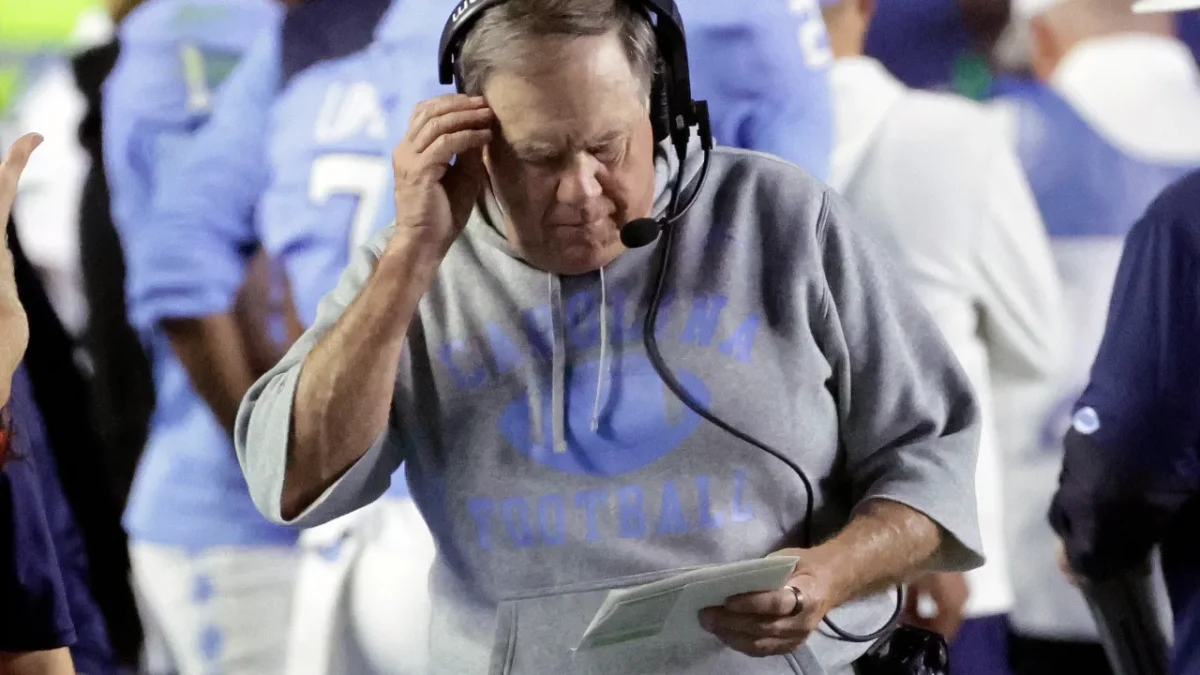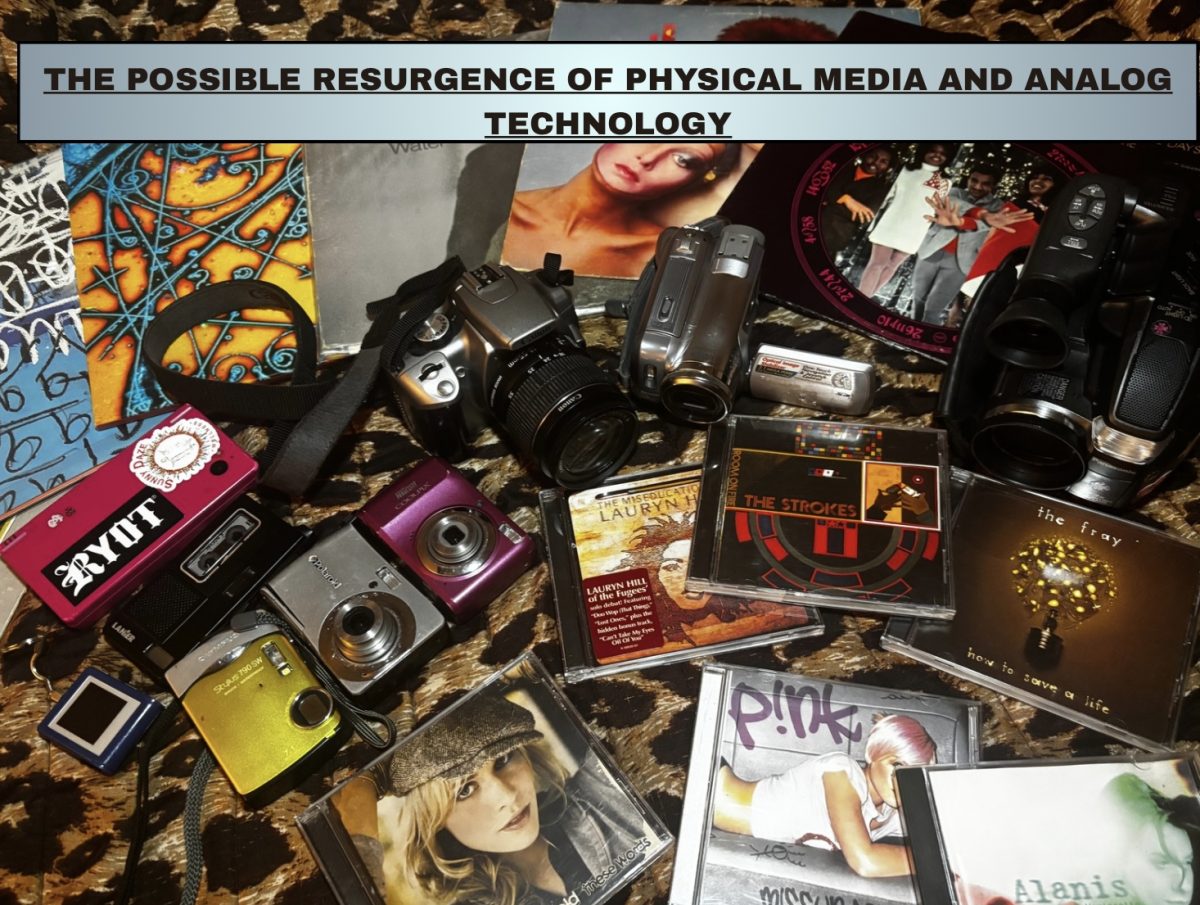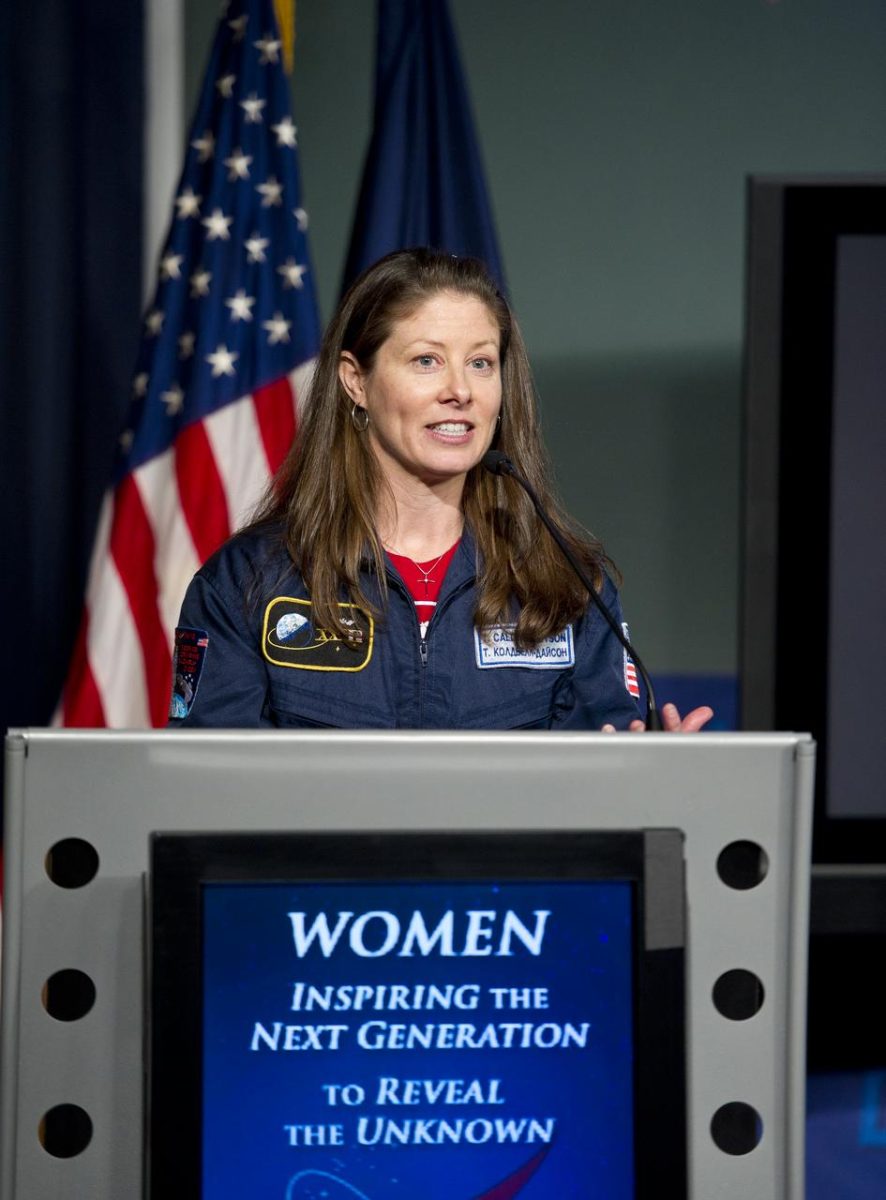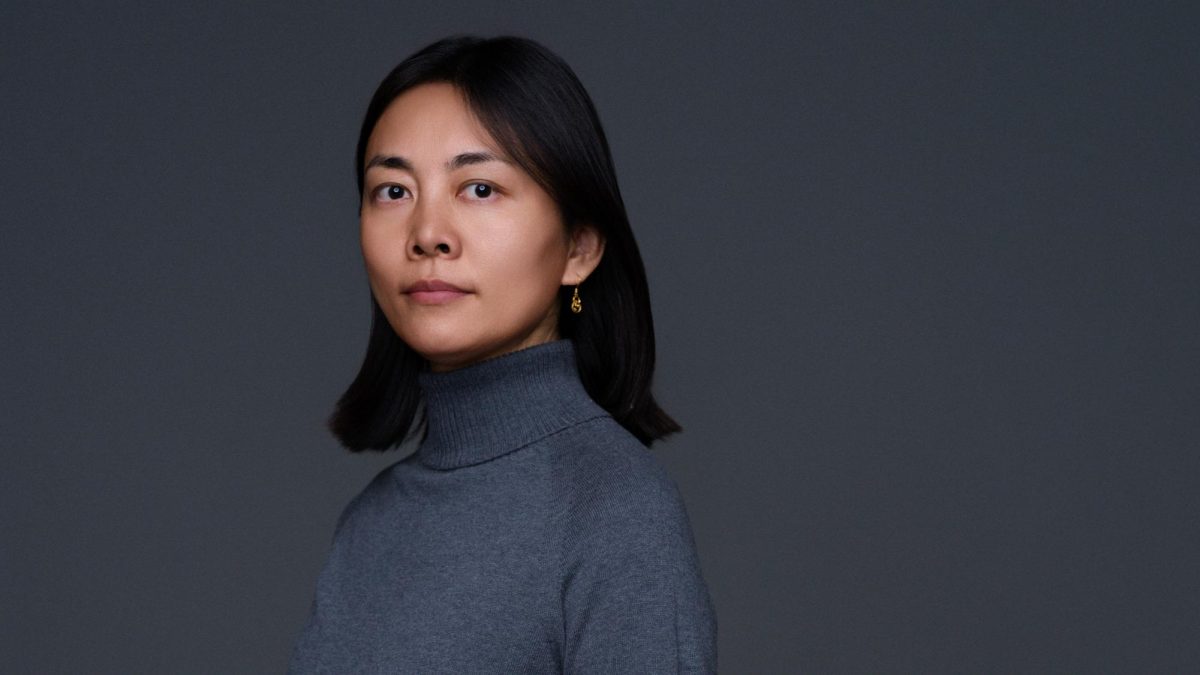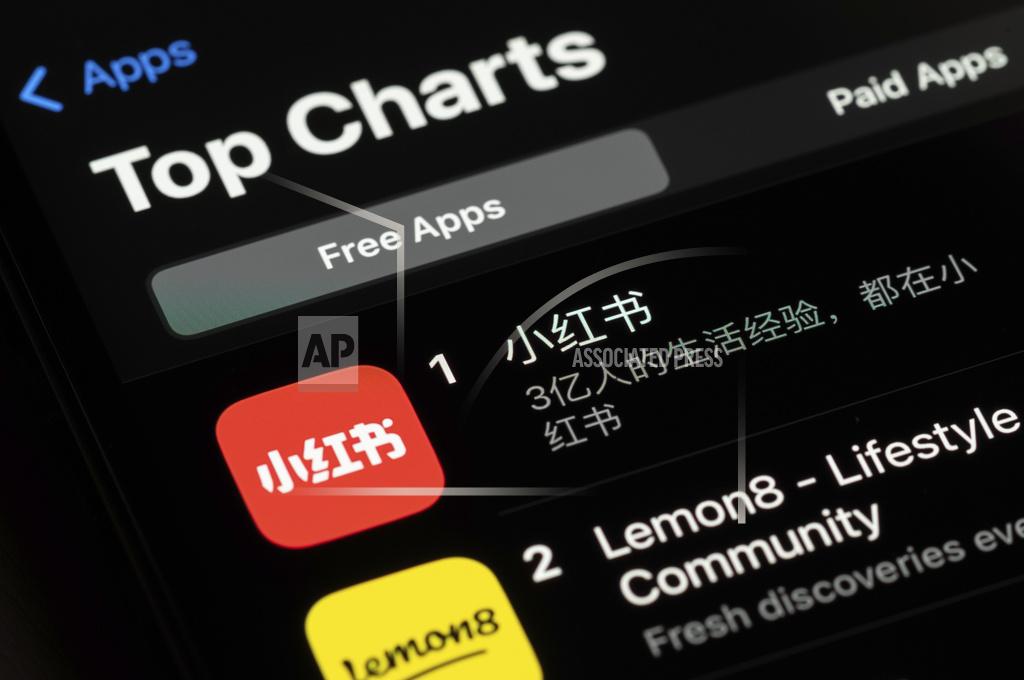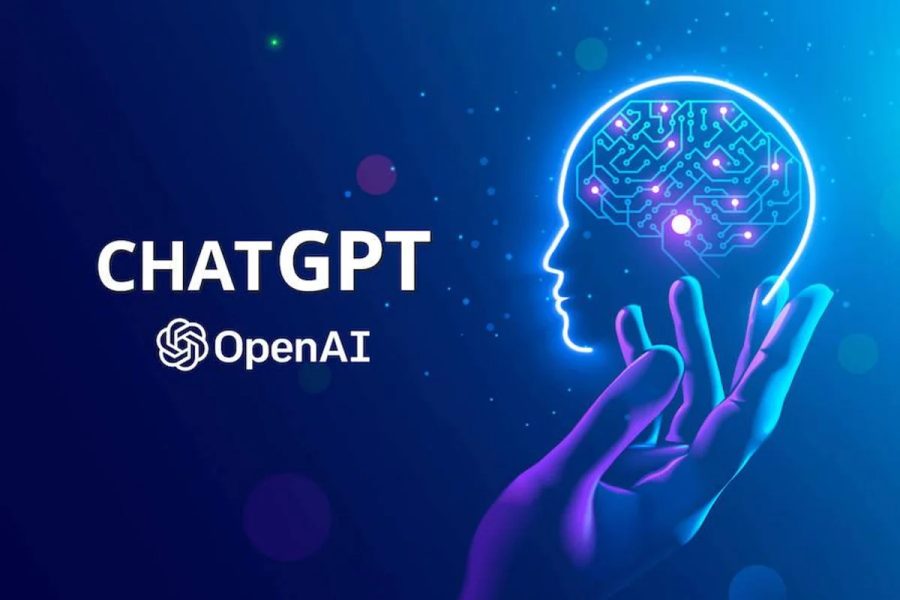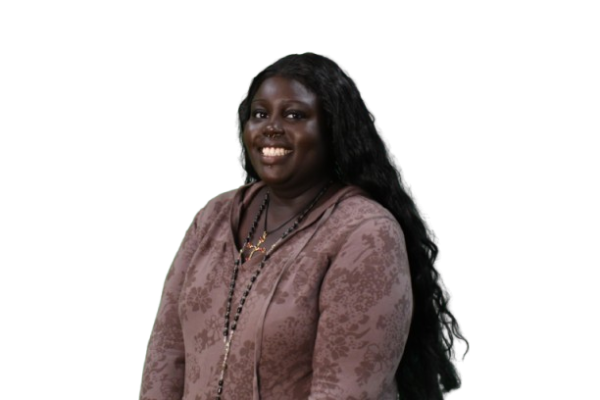At Houston Community College’s 4th Annual National AI Conference, educators, students, and industry leaders came together to discuss the growing influence of artificial intelligence across fields like education, gaming and manufacturing.
The event also marked a monumental milestone for HCC as the first community college in the U.S. and Texas to offer a bachelor’s degree in Artificial Intelligence and Robotics. The conference included keynote speakers, panelists, student showcases, and hands-on demos of AI.
The conference opened with a keynote from Rachel Wortham Morris of Microsoft, who spoke about how AI is starting to play a bigger role in education from creating rubrics to automating grading. But what stood out most was her call for clearer boundaries and consistent policies around AI use in classrooms. “What are the policies and where are the boundaries?” she asked, before going on to explain that while the answers may not be fully clear yet, the planning needs to start now.“We need to go ahead and have those plans. We need to have a vision for how far we go ahead and it should be an expectation of every student. When they walk into a class, that is made clear to them… We owe our students that. We also owe it to ourselves to continue to work with this.”
Her message was less about having it all figured out and more about pushing institutions to start having these conversations and include students in the process. From there, the spotlight shifted to the educators in the first panel of the day.
The education panel explored how AI is being integrated into classrooms and curriculums, particularly at the community college level. Panelists discussed both the opportunities and challenges AI presents for educators and students from personalized learning tools to questions of accessibility and equity. The conversation also touched on how important it is to prepare students for a future job market that’s going to rely heavily on AI literacy. Dr. Hardik Gohel (UHV) pointed out the gap between what students are learning in the classroom and what the workforce actually needs. “There’s a huge gap in the quality of education and workforce readiness,” he said, while also pointing out how many current curriculums across the country are outdated. With the implementation of AI in the classroom, Gohel hopes to see a stronger partnership between industry and academia that can help bridge that divide.
As part of the conference, I had the opportunity to interview two wonderful individuals who provided unique perspectives on the future of AI in education. Below, you’ll find insights from Ron Larson, an Assistant Professor at Tallahassee State College, and Alexandra Almestica, a faculty member and librarian at HCC’s Alief campus.
To hear the full interview, [click here ].
After the education panel, the spotlight shifted to the students,
Student Panel: Moderated by Anthony Randall (HCC), with students Sha’necia Holden (HCC), Aradhana Sharma (UHV), Alan Guevara (MDC), and James Wicker (CGCC) discussing their experiences studying AI.
The student panel gave a genuine and relatable look at what it’s like studying AI right now. Everyone came from different schools and backgrounds, but they all shared how getting into AI has shaped their college journeys, current projects, and future plans. Some talked about how impressive it is to mix AI with other fields like technology, environmental science, and game design, and a few opened up about trying to balance school, internships, and just…life. It was honest, encouraging, and a reminder that there’s no one way to succeed.
After hearing from students, the conversation shifted toward how AI is being used on a much larger scale, particularly in industries like energy and manufacturing.
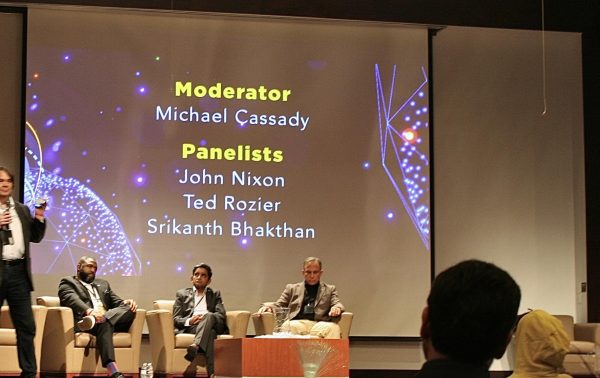
AI in Energy & Manufacturing: Moderated by Srikanth Bhakthan (Microsoft), with insights from David Thanoon (Shell), John Nixon
(Siemens), Ted Rozier (Festo Didactic), and Michael Cassady (Invoke).
Industry professionals talked about how AI is changing the game in energy and manufacturing. From predicting equipment issues before they happen to streamline workflows, AI is helping companies work faster and smarter. The panel also highlighted how important it is to prepare students with both the technical and the soft skills to keep up with the industry’s evolving needs.
After the panel, I got the chance to chat with John Nixon, Vice President of Siemens, one of the panelists for the AI in Energy & Manufacturing discussion. When I asked what inspired Siemens to participate in this year’s conference, he said the company is proud to partner with HCC and sees events like this as a way to connect with the next generation of innovators and entrepreneurs.
“We’re excited to engage in a conversation where we can share insights on where the market and our customers in the energy and manufacturing industries are investing for artificial intelligence,” he said. “It’s all about helping students and faculty succeed.”
On the topic of what role industry leaders like Siemens should play in education, Nixon didn’t hold back: “Siemens has an entire division committed to workforce development and startups to provide the foundational knowledge and tools necessary to thrive in the rapidly changing technology landscape.”.
Following the discussion on energy and manufacturing, the conference shifted focus to another rapidly evolving area of AI integration: the gaming industry. Featuring Dr.Tony Liao (UH) and Chris Khuong (HCC)
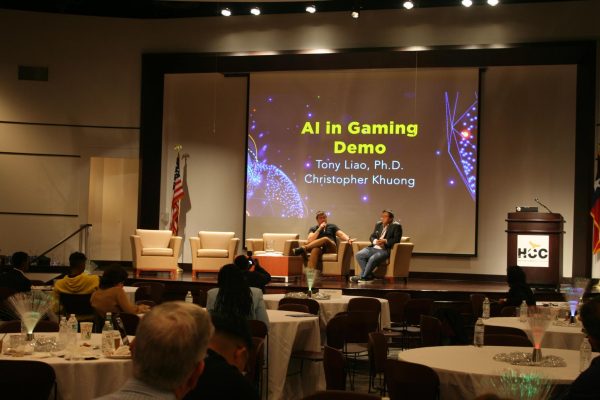
Tony Liao, UH; Chris Khuong, HCC
HCC AI conference 2025 (Jackline Rajab)
Who discussed how artificial intelligence is changing the gaming industry from the inside out.
The gaming panel covered how artificial intelligence is influencing everything from game design to player experience. Speakers explored how AI can generate more dynamic environments, adaptive gameplay, and smarter non-playable characters (NPCs). The conversation also raised questions about the balance between human creativity and machine learning in storytelling and development. Where during the panel discussion
Dr. Liao emphasized the importance of “mastering your domain” whether you’re a student, educator, or institution. He described the relationship between each role as symbiotic, pointing out that AI should be used as a tool to bridge gaps and enhance collaboration. “As educators, the main focus should be teaching students how to discern, be able to evaluate, explain, and value what AI can provide in gaming,” he said.
While the gaming panel showed how AI is shaping the future of entertainment, there was also a focus on providing students with the resources and opportunities to dive deeper into these fields. Several organizations at the conference are dedicated to helping students get the support they need to succeed in AI, robotics, and more.
Beyond the Panels: Student Voices & Community Resources
Outside of the main panels, I got the chance to speak with members of HCC’s Computer Science Association Club, who shared how events like this keep them motivated and connected with opportunities in the tech world.
Local organizations like Capital IDEA and Genesys Works also had booths at the event. Both groups are doing important work: Capital IDEA connects students with training, funding, and job resources in high-demand industries like AI and robotics, while Genesys Works focuses on helping high school students from underserved communities gain real-world skills and career experience.
You can check out my full interviews with the:
HCC Computer Science Association Club [Click Here]
Capital IDEA [Click Here].
Genesys Works [Click Here].
HCC’s 4th Annual National AI Conference was not just about tech. It was about connection, collaboration, and the future of learning. Whether you’re a student, educator, or just curious about where AI is heading, events like this make it clear that we are all part of shaping what comes next.








